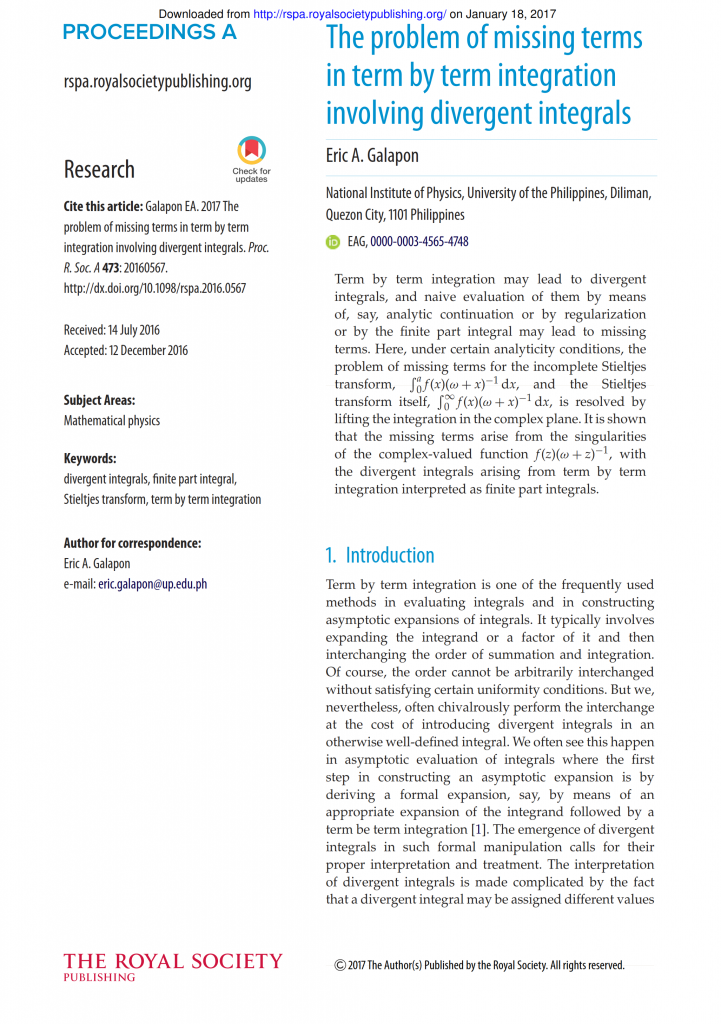The operations of integration and summation cannot be interchanged arbitrarily. Some uniformity conditions must be satisfied in order for the interchange to be performed. If the conditions are not satisfied and the interchange is nevertheless carried out, some outrageous things happen. For example, the interchange may lead to an infinite series of divergent integrals; that is, one ends up with summing infinity infinitely many times. And how do we make sense of such result? In the paper below, I tackle the problem of making sense of the interchange when the necessary uniformity conditions are not met for the specific case of the Steiltjes transform. Overall the treatment leads to a theory of integration using divergent integrals.
Get your copy here.
Get the preprint here.
Read my earlier posts on this topic here and here.
Read Who is afraid of divergent integrals?
